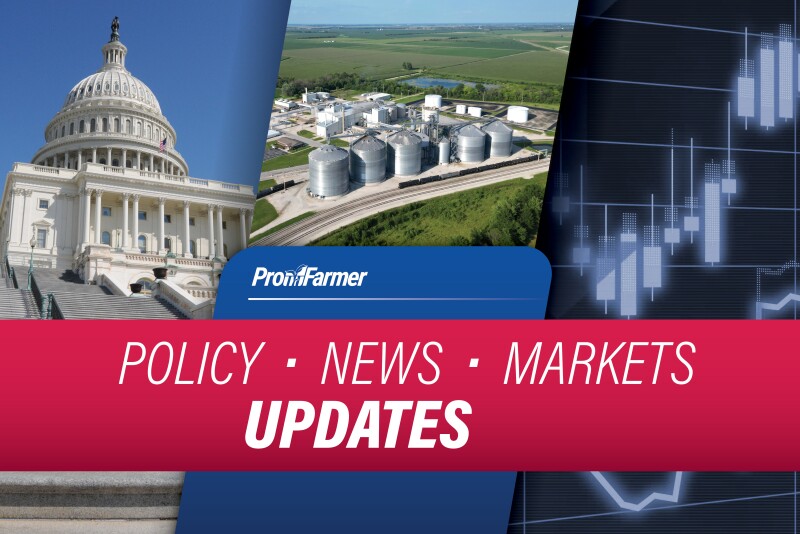India offers U.S. ‘deep’ tariff cuts but shields grain and dairy... India has proposed significant tariff reductions to the U.S. to avert a looming 26% reciprocal tariff threatened by President Donald Trump, set to take effect on July 9. While New Delhi is open to lowering duties on various goods, it is steadfast in maintaining high tariffs on critical agricultural sectors, particularly foodgrains and dairy products, according to the Financial Times. Currently, tariffs on U.S. rice range from 70% to 80%, and dairy products face duties between 30% and 60%.
In exchange for tariff reductions, India is requesting the U.S. to lower its tariffs on Indian exports from labor-intensive sectors such as textiles, leather and handicrafts. Additionally, India seeks exemptions from U.S. social security payments for its workers on short-term visas, similar to provisions secured in its recent agreement with the UK.
Both nations aim to finalize the first phase of a bilateral trade agreement by fall, with a shared goal of doubling their trade volume to $500 billion by 2030. However, negotiations are complex, given contrasting priorities and the political sensitivities involved, particularly concerning agriculture in India and manufacturing interests in the U.S.
Japan scrambles as U.S. tariff talks stall... Japan is launching a multi-pronged effort to counter the fallout from stalled trade negotiations with the U.S., as steep tariffs — especially on autos — threaten a vital pillar of the nation’s economy. With summer elections looming and public discontent rising, Prime Minister Shigeru Ishiba’s government is injecting a ¥900 billion ($6.3 billion) emergency stimulus package and offering strategic concessions, including advanced shipbuilding cooperation, to regain traction with President Donald Trump ahead of the G7 summit.
Despite diplomatic overtures, Washington remains unmoved. A 25% tariff on Japanese autos still stands, affecting a sector that makes up nearly 30% of Japan’s U.S. exports and supports over 5 million domestic jobs.
USDA expands screwworm eradication efforts with major investment in Mexico... USDA Secretary Brooke Rollins announced a significant escalation in efforts to fight the New World Screwworm (NWS) through a strengthened bilateral strategy with Mexico. USDA will invest $21 million to modernize a fruit fly facility in Metapa, Mexico, which will be converted to produce 60 million to 100 million sterile NWS flies per week — dramatically expanding current capacity and enhancing the reach of the sterile insect technique (SIT).
The flies will complement current operations from the COPEG facility in Panama, which is already operating at full capacity with 44 weekly release flights.
USDA will continue to evaluate the current suspension of live animal imports from Mexico every 30 days.
Rollins beefs up state’s meat, poultry inspection — with a warning... Rollins USDA will distribute $14.5 million in reimbursements to state-run meat and poultry inspection programs. She emphasized the Trump administration’s commitment to supporting the nation’s food supply chain.
However, USDA also issued a warning: “This is not a sustainable path forward. Policymakers across the federal government should come together to think through ways to continue these critical state meat and poultry inspection programs.” This statement highlights the need for a long-term, bipartisan solution to secure ongoing support for state inspection efforts.
While the immediate funding boost will help states maintain vital inspection services, USDA and Rollins are calling on Congress and policymakers to find a lasting solution for the future of state meat and poultry inspection programs.
Means defends MAHA Commission’s outreach to ag sector... Calley Means, a lead figure behind the Trump administration’s “Make America Healthy Again” (MAHA) initiative, pushed back against criticism from agricultural groups alleging they were sidelined in the drafting of the MAHA Commission’s initial report. In a post on X, Means emphasized that the White House explicitly directed the commission to examine pesticide impacts when it was established. “There is ZERO plan — and in fact it would be insane — to do anything rash to hurt the American farmer,” he wrote. “Again — there was no effort to keep ag stakeholders out of the initial assessment.”
The commission’s preliminary report last week outlined possible contributors to chronic illness, including environmental chemical exposure. Means noted the report “would have no credibility if it didn’t address concerns over the cumulative chemical load.”
Looking ahead, the MAHA Commission is preparing to draft formal policy recommendations aimed at curbing chronic disease — promising, according to Means, deeper consultation with the agricultural community during the development stage.
Sen. Chuck Grassley (R-Iowa) said the MAHA Commission’s initial assessment appeared “a little less strong on pesticides” than expected — a possible signal, he added, that Health and Human Services Secretary Robert F. Kennedy Jr. is taking farmer concerns seriously. “It is in tune with what I’ve been telling [Kennedy]: that he shouldn’t be fooling around with the way we do farming in the United States,” Grassley told reporters. “Maybe that relaxed approach that he used is some indication he’s listening.”

